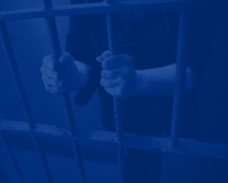
spring 2010
Research finds
Click on headline to download full PDF report
Center for Children’s Advocacy Report – Truancy Initiatives: National Models and Connecticut Initiatives
This report outlines national truancy intervention models, and provides a directory of resources for current truancy initiatives in Connecticut.
Back on Track: Supporting Youth Reentry from Out-of-Home Placement to the Community
Prepared by the Youth Reentry Taskforce of the Juvenile Justice and Delinquency Prevention Coalition, this briefing outlines the concept of reentry services in theory and practice, offers a review of federal policy previously enacted to support reentry, suggests opportunities for improvements in public policy, and reviews promising initiatives underway.
Advancement Project Report: Test, Punish, and Push Out
This report is intended to provide an overview of zero-tolerance school discipline and high-stakes testing, how they relate to each other, how laws and policies such as No Child Left Behind have made school discipline even more punitive, and the risk faced if these policies that often drive kids out of school are not reformed.
W. Haywood Burns Institute Report: The Keeper and the Kept
This publication is the second in a series that looks to comprehensively address all aspects of
reducing disparities in the juvenile justice system. It explores the Institute’s approach to reform and local obstacles to achieving measurable reductions in racial and ethnic disparities.
Hidden Injustice: Lesbian, Gay, Bisexual, and Transgender (LGBT) Youth in Juvenile Courts
This Equity Project Report examines the biased treatment LGBT youth receive from juvenile court professionals, unduly punitive responses, harmful “treatment” services, and unsafe conditions of confinement. The reportprovides recommendations on the education of juvenile justice professionals and the development of LGBT-sensitive practices and policies to ensure that juvenile courts are equipped to respond to LGBT youth appropriately and effectively.
A Review of Conceptual Contributions to Juvenile Justice and Youth Development Arenas
This review presents conceptual contributions for resolving the social problem of juvenile crime. Four conceptual contributions in academic and policy literatures are outlined with a focus on the ways they engage issues of juvenile delinquency.
Federal Advisory Committee on Juvenile Justice: 2009 Annual Report
The Federal Advisory Committee’s 2009 Annual Report discusses key issues facing juvenile justice and proposes specific steps to address these issues with the goal of ensuring that juvenile justice policies promote public safety, prevent delinquency, rehabilitate youth, and are cost-effective.
Texas Public Policy Foundation: Getting More for Less in Juvenile Justice
Marc Levin at the Texas Public Policy Foundation aims to help state and local policymakers identify cost-effective approaches to reducing juvenile crime and rehabilitating juvenile offenders in this report. It includes a comprehensive review of juvenile justice programs nationwide, measuring their effectiveness and makes recommendations for improvements in data collection and analysis.


